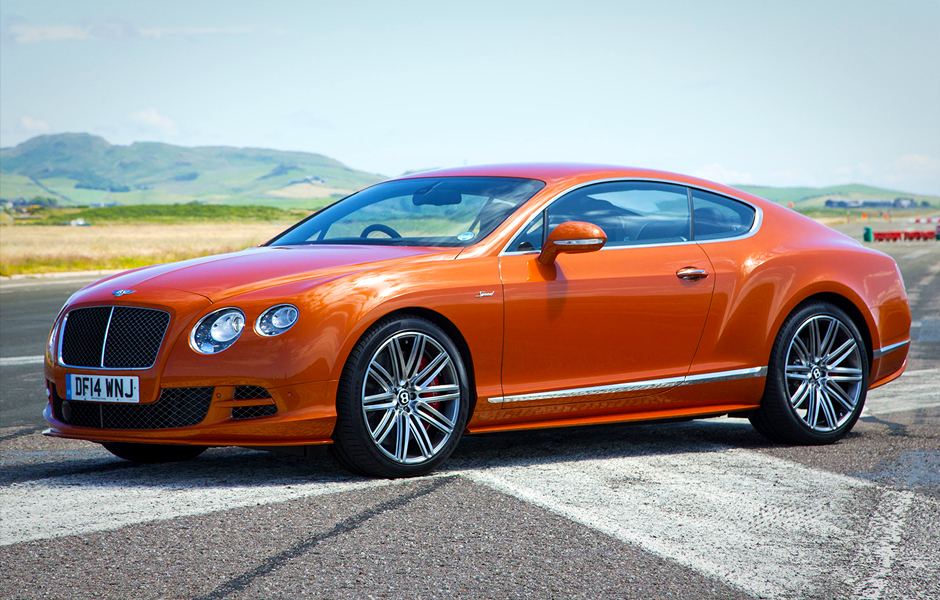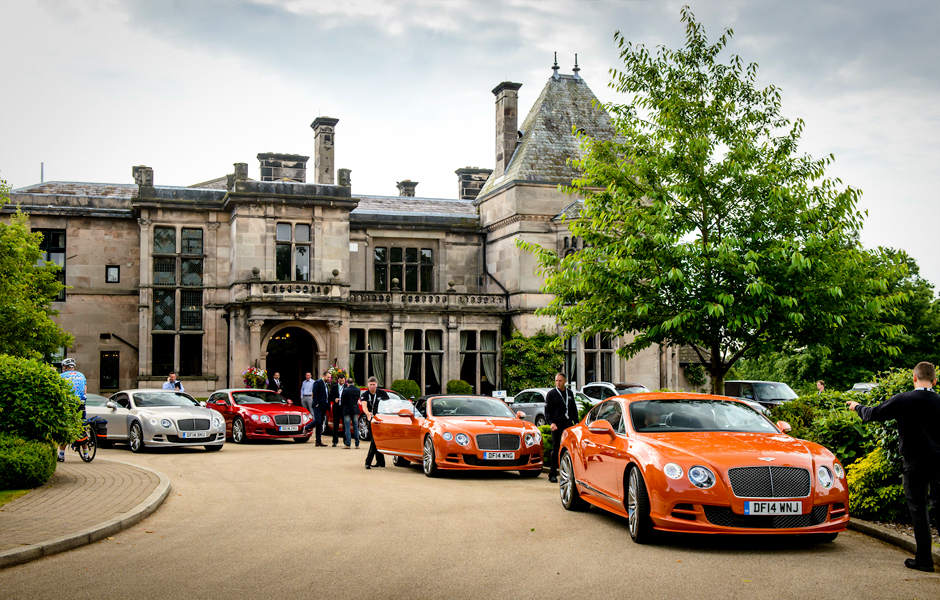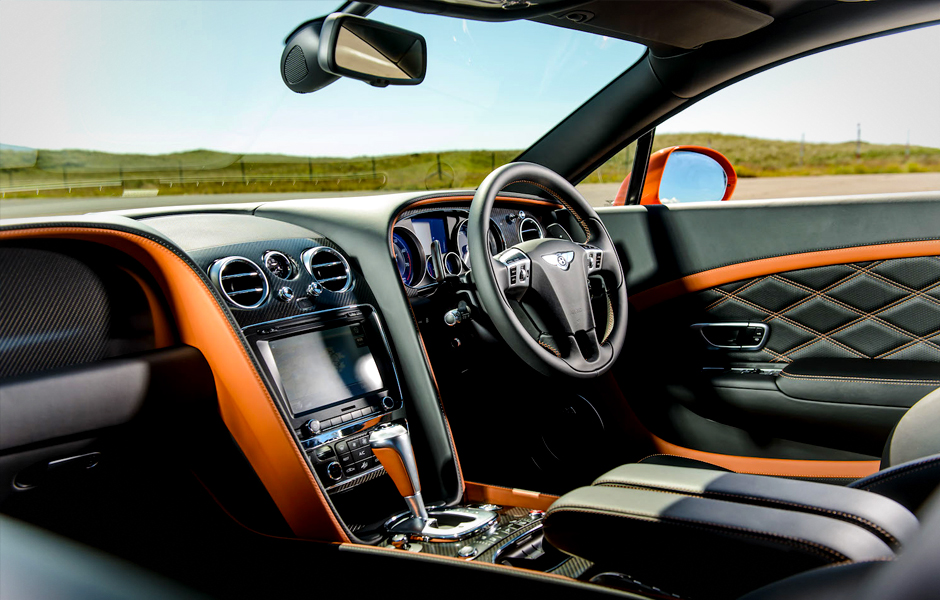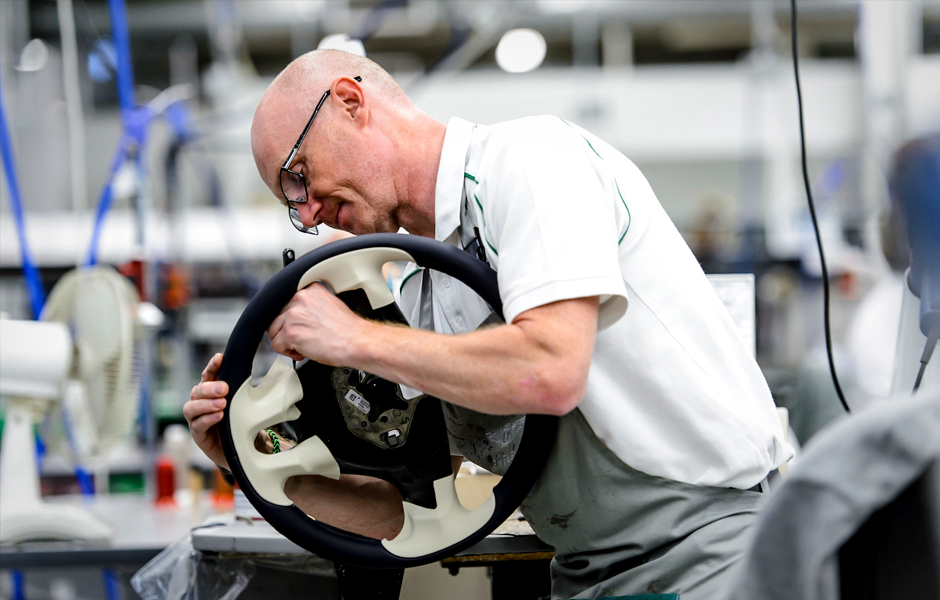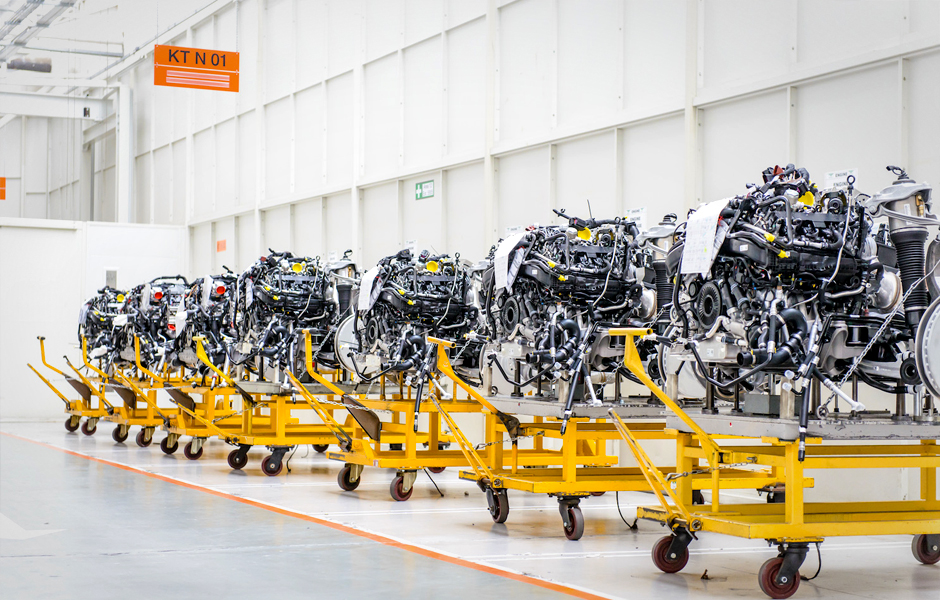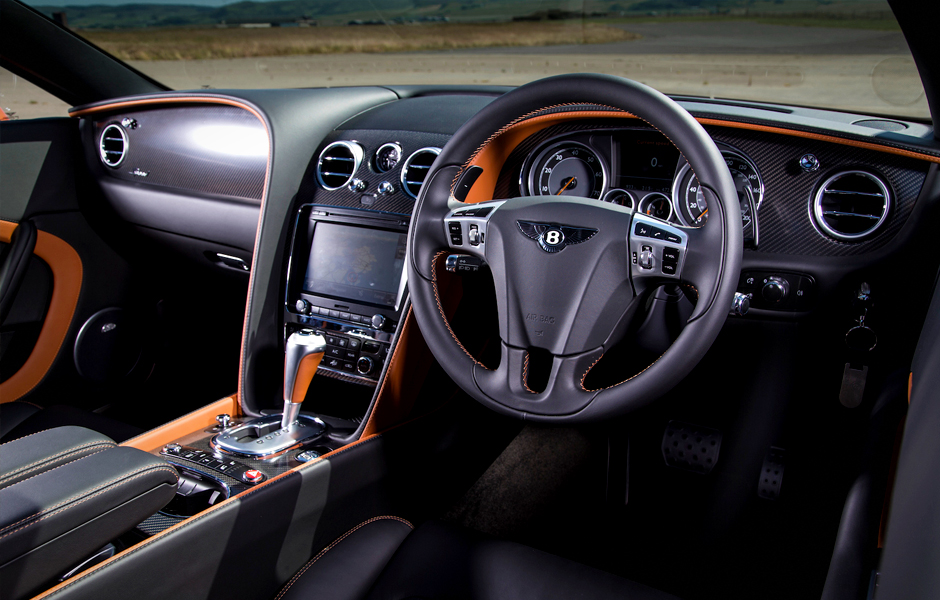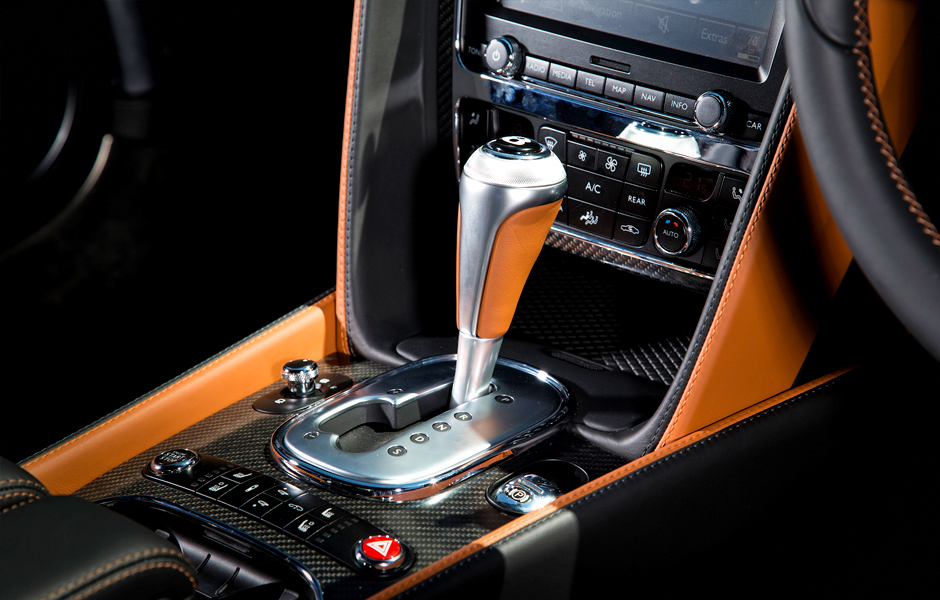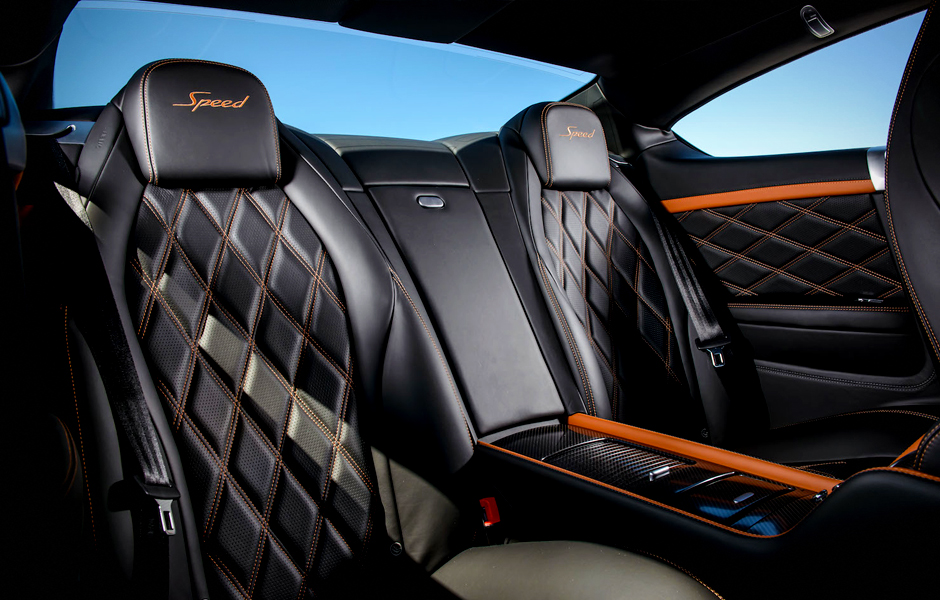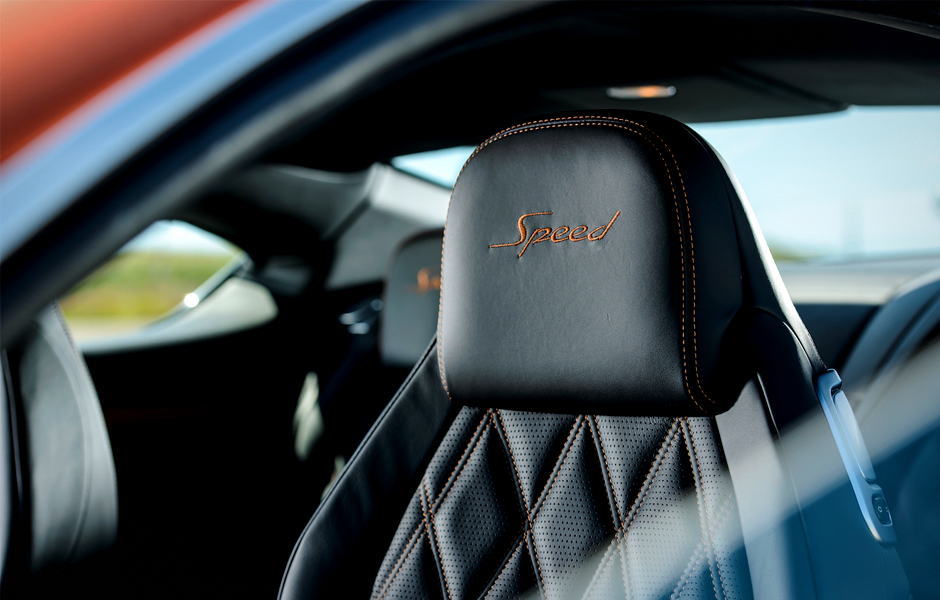Lay eyes on a Bentley and it’s abundantly clear the car is something special. Look then at the price tag and that suspicion is reaffirmed; a car that costs over $230,000 must be exceptional. Delightfully, it is.
Take the 2015 Continental GT Speed for example. Yes, it’s a swoopy luxury coupe – or convertible – that packs all-wheel drive, four sumptuous leather seats, and a 626-horsepower W12 engine into a 6,400-pound, breath-taking sled. Amazingly, that, though, is just the tip of the iceberg.
Related:
Bentleys are more than just bits of metal and wood and leather; they’re hand-built works of at.
To hammer that point home, Bentley flew me to its factory in Crewe, England, just outside Manchester. And what I saw there will forever change my appreciation of the Bentley brand: a true passion for carmaking.
Built with love
If every customer toured the Bentley factory, I wager the brand could charge twice as much for its cars.
Rather than lead you off, comparing the Bentley factory to, say, a Ford or a Toyota facility, I’ll cut straight to the bone: Bentley has a full-on woodshop on its premises.
Most people, I find, know that Bentleys are bespoke creations, tailored to the buyer. A prospective Bentley owner can choose the leather scheme, wood trim, and paint color. But, if I’m honest, you can do that with most any car. What few people comprehend, though, is the sheer amount of care that goes into fulfilling the wishes of a Bentley customer.
Over 400 man-hours go into each Bentley. To me, that figure is incomprehensible. So let me jump to a figure that is a bit more digestible, easier to wrap one’s head around: the leather-wrapped steering wheel of every Bentley takes just about four hours to complete – by hand.

Looking at the thing in the completed car, I’d never guess the care and time that went into shaping something as rather innocuous as the steering wheel. That’s how good it is.
Starting with the outside rim, a man takes the form, and, based upon the color pallet chosen by the customer, meticulously wraps it in leather. Once the leather is in place around the rim, he marks the inside stitching thread holes with – of all things – a fork. He then goes around and punches each hole, one by one.
The wheel is then sent off to a seamstress who sews the whole thing up – again by hand. It returns to the man and he adds the center bit of leather, which will cover the airbag and horn. Again, stretching the leather and punching holes by hand. This process goes back and forth until what he’s left with is an absolutely perfect and stunning steering wheel.
I worry we as a society have grown too accustom to seeing consumer goods – no matter how expensive – and assuming they were simply stamped out on a mechanized assembly line. I know I’ve fallen victim to it. It was eye-opening for me, then, to meet the man and seeing the care with which he creates something as commonplace as a steering wheel. Bentley could just as easily build a machine do the job. But it didn’t … because it wouldn’t be as special.
And, amazingly, this level of car is poured into every part of a Bentley.

The wood on the dash, for example, is real wood. Bentley processes around £3-million worth of wood for its dashboards and interior trim each year. Collecting only the finest veneers shaved from tree root knots from around the world, Bentley houses them in a single climate-controlled room at its factory. The chamber smells like a sauna – but in a good way. It’s the scent of fresh, warm wood that permeates your nostrils and makes you feel like you could bare-knuckle box with Hemmingway.
Bentley has ritualized the art of carmaking, which re-instills the passion back into the process, effectively undoing what Henry Ford first did. For instance, Bentley tests every single one of its engines before it’s installed into a car.
This stands in stark contrast to most other automakers, which only try out a fraction of the engine production. Instead, Bentley puts each of its 6.0-liter W12 engines through a series of tests. First, it cold-tests for leaks. Then it straps the engine in and runs it hot, again checking for leaks and imperfections. Should one be found, a team meticulously pulls it apart and rebuilds, only to test it again.
Features you’ll like
Yes, the engine makes 10 more horsepower, which isn’t insignificant, but the really stunning parts are the new interior and exterior touches.
The exterior, when fitted with the Mulliner Styling Specification, now features a new, body-color sharp front splitter, sporty side skirting, and rear diffuser. No matter which color the buyer chooses for the sleek bodywork, it’s set off by a dark tint finish that is applied to the 21-inch Speed wheels, headlights, and taillights. Then, to further draw out the darkened features, red paint is applied to the massive brake calipers.

Delightfully, the exterior isn’t the only place the stylish Bentley boys have made changes for 2015. If specified by the customer, the GT Speed interior includes a color split leather scheme throughout the cabin – an exclusive for the speed models. For my money, this is the only way to have the 2015 GT Speed fitted. It adds a level of contrast visual flare found little where else in the bespoke GT market.
Further proving its obsession with detail, Bentley commissioned some men to create a steel injection-molded “Speed” logo for the dash that, like so many other features of the GT Speed, is cold to the touch.
How it feels to drive
The level of attentiveness that Bentley pays to its build process isn’t felt just from the isles of the factory; it can be felt from behind the wheel as well. The 2015 Bentley Continental GT Speed drives just as smooth as it looks – even at speed in excess of 180 mph.
As I’ve mentioned before, a 6.0-liter W12 engine – backed by a silky-smooth eight-speed automatic – that produces 626 horsepower and 604 pound-feet of torque powers the GT Speed. All told, it’ll do 0 to 60 in 4.0 seconds and onto a top speed of 206, which makes it the fastest production Bentley ever.
Arguably, this car would be magnificent to drive just about anywhere. But to match Bentley’s beauty, brand representatives had us journalists drive it from Crewe, England up to Loch Lomond in Scotland.

Not long, after my co-driver and I climbed behind the wheel of the blue GT Speed coupe, cruising along the stunning blue shores of the Loch, Led Zeppelin’s “When the Levee Breaks” came on the stereo.
While I’m no stranger to the tune, I’d never really appreciated its slower pace. Something about it, though, seemed perfect for the moment. Around us, a piece of British motoring mastery, with the sounds of a 12-cylinder engine burbling in our ears, and ahead of us, blue water, bluer skies, highlighted by the green shoreline.
The GT Speed is one of the most comfortable places to be on the planet. Despite that, it can turn into a veritable rocket ship. Don’t forget, it’s the fastest Bentley ever. Put the shifter down into sport, turn the air suspension stiffness up, and put the hammer down, and the all-wheel-drive British luxury coupe turns into a sports car capable of going toe-to-toe with Ferraris.
At the end of the day, I don’t know what impresses me most about the GT Speed, whether it’s the exterior looks, the care and craftsmanship of the building process, interior refinement, or the power. I’m a bit of a philistine, so I might have to go with the acceleration. I appreciate it for the other parts, too, though.

